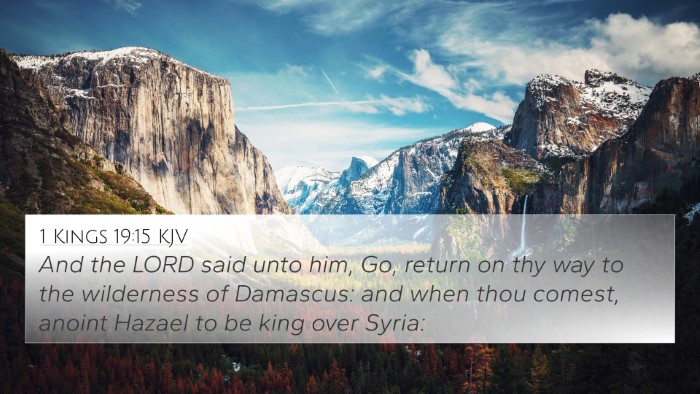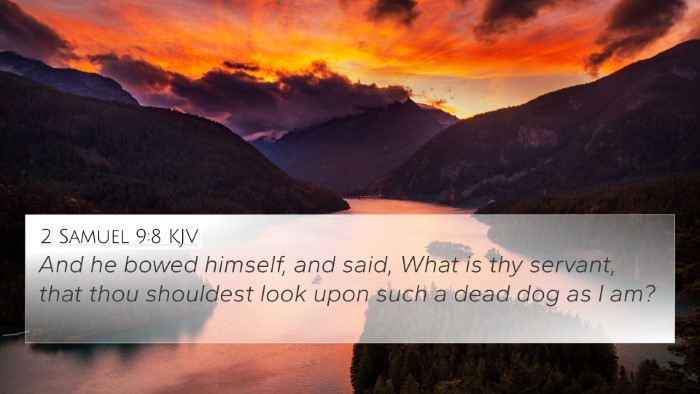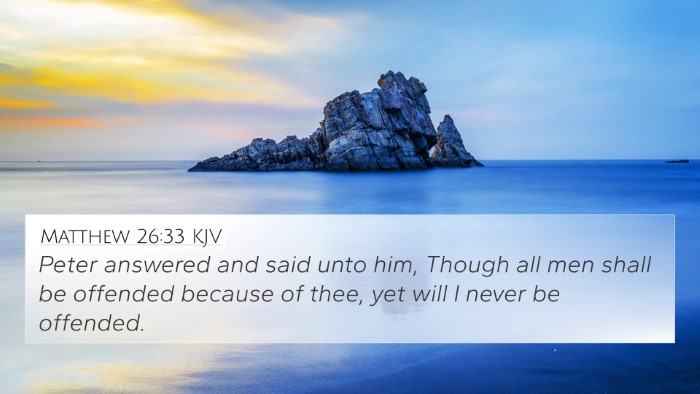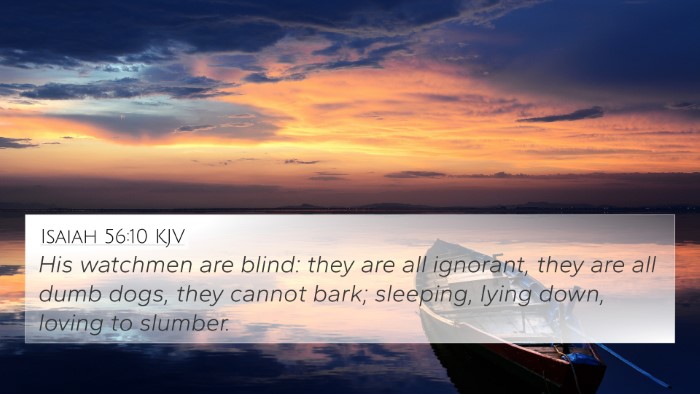Meaning and Interpretation of 2 Kings 8:13
2 Kings 8:13 reads: "And Hazael said, But what, is thy servant a dog, that he should do this great thing?"
This verse reflects a pivotal moment in the story of Hazael, a servant of King Ben-Hadad of Aram, who seeks understanding of his future actions foretold by the prophet Elisha. Below, we shall delve into the implications of this dialogue, drawing insights from public domain commentaries.
Context and Significance
The context of this interaction is essential for understanding Hazael's response:
- This verse follows Elisha's anointing of Hazael to become king over Aram, a significant prophetic act (1 Kings 19:15).
- Hazael's questioning about his capability to fulfill such great plans reveals his humility, uncertainty, and possibly his disbelief in his ability to commit such atrocious acts (Matthew Henry).
- This moment illustrates the intersection of divine providence and human agency, showcasing how Hazael grapples with the weight of his forthcoming destiny (Albert Barnes).
Spiritual and Moral Lessons
Drawing from the commentaries, we can infer several spiritual and moral lessons:
- Understanding Humility: Hazael's self-perception as “a dog” symbolizes humility. It serves as a reminder that great tasks often begin with self-doubt, yet God may equip us for what we least expect of ourselves (Adam Clarke).
- The Nature of Power: His response also captures the complexities associated with power and ambition. Although he may not yet see himself as capable of such treachery, the verse foreshadows the violent actions he is destined to undertake (Matthew Henry).
- Divine Will: Ultimately, the text underscores that God uses unlikely individuals to fulfill His purposes, highlighting the unpredictability of divine sovereign will (Albert Barnes).
Bible Verse Cross-References
To enrich the understanding of 2 Kings 8:13, several related Bible verses emerge that provide thematic connections:
- 1 Kings 19:15-16: Elisha anoints Hazael, establishing the prophetic call.
- 2 Kings 8:7-9: The context of Hazael's visit to Elisha and revelation about King Ben-Hadad.
- Isaiah 10:5: A commentary on the role of Assyria as a rod of God's anger, which parallels Hazael's destiny.
- Amos 1:4: Prophecies against Damascus, linking to Hazael's actions.
- Exodus 4:10-12: Moses’s reluctance serves as a comparison to Hazael’s perceived inadequacy.
- Psalms 37:39-40: The assurance that God will deliver the righteous, contrasting Hazael’s path.
- Matthew 26:56: The betrayal theme runs parallel with Hazael’s foreseen treachery.
- Romans 9:17: God’s intention to show His power through chosen vessels mirrors Hazael’s role.
Connections Between Bible Verses
The inter-Biblical dialogue that can be drawn from 2 Kings 8:13 is rich with connections:
- The understanding of God's use of individuals to carry out His will can be seen in both the Old and New Testament contexts. For example, contrast Hazael's narrative with that of Judas Iscariot, who also struggled with his role in a greater plan.
- The theme of divine selection recalls instances where God elects unassuming or unlikely individuals for significant tasks (e.g., David’s rise from shepherd to king) which can be seen in 1 Samuel 16:7.
- Hazael’s questioning shows a relational dynamic with God, akin to Gideon’s hesitation in Judges 6, further illuminating the character of divine calling.
How to Use Bible Cross-References
Understanding and interpreting 2 Kings 8:13 can be enhanced by employing tools for cross-referencing:
- Utilizing a Bible concordance allows readers to find similar terms and themes across varying texts.
- A cross-reference Bible study can reveal thematic consistencies, such as God's sovereignty and the rise and fall of leaders.
- Employing a Bible cross-reference guide can lead to discovering deeper insights about Hazael’s character and its implications in light of God’s plan.
- Implementing cross-referencing Bible study methods allows for a comparative analysis between narratives that display moral or spiritual lessons.
- Engaging in comprehensive Bible cross-reference materials aids in grasping complex theological themes and understanding intertextual relationships.
Conclusion
The verse 2 Kings 8:13 offers a rich tapestry of meaning, connecting threads of humility, divine purpose, and prophetic foresight. By examining cross-references and inter-Biblical dialogues, one can enhance their comprehension and appreciation of the text. This comparison not only applies to Hazael’s role but also serves as an illustration of broader Biblical themes regarding divine sovereignty and human agency.















